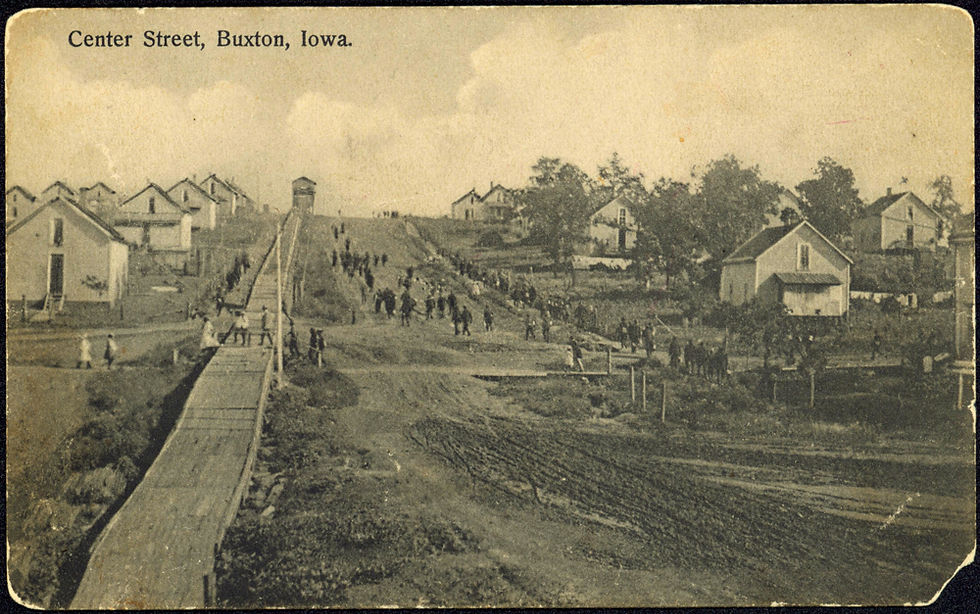A Black Utopia Ahead of Its Time
- Amner Martinez
- May 16, 2023
- 2 min read

In a recent episode from the “Iowa Civil Rights History” podcast, host Erick Nganyange explores the rich history of what was once known as “The Black Utopia”. For an in-depth discussion about the history and how the Black Utopia came to be, check out his full episode with special guest, Rachelle Chase.
In the early 19th century, a small town nestled in the heart of Iowa challenged the prevailing norms of racial segregation and discrimination that plagued the United States. Buxton, Iowa, once hailed as the "Black Utopia," served as a testament to the resilience and determination of African Americans who sought to create a thriving community free from the constraints of racial prejudice. This article explores the remarkable story of Buxton, highlighting its cultural impact and its significance as a pioneering example of an inclusive and progressive society.
Buxton's history traces back to the coal mining industry in Iowa. In the 1870s, Consolidation Coal Company opened mines in the area, attracting a diverse workforce, including African American laborers from the South. Unlike many other mining towns of the era, Buxton embraced an integrated model that allowed workers of different races to live and work side by side, offering equal wages and opportunities for advancement. Buxton soon became a beacon of hope and opportunity for African Americans seeking refuge from the racism and discrimination prevalent in the South and other parts of the country. The town's integrated schools, churches, and businesses fostered an environment of cultural exchange and mutual respect. Buxton's residents celebrated their diverse heritage through music, art, and community gatherings.

IowaCulture.gov
One of the most significant aspects of Buxton was its commitment to education. The town boasted a remarkable school system that provided African American children with access to quality education, which was often denied to them elsewhere. The Buxton School System ensured that black students had the same educational opportunities as their white counterparts, setting an inspiring precedent for equal access to education. Despite the racial challenges faced by the African American community during this era, Buxton thrived economically. The coal mines provided stable employment, and the residents used their wages to establish successful businesses, including grocery stores, restaurants, and entertainment venues. This economic prosperity not only benefited the town's residents but also inspired neighboring communities to recognize the potential of inclusivity and diversity.
Buxton, Iowa, was an embodiment of hope and resilience, proving that a racially inclusive society could thrive and flourish. Its remarkable experiment in integration left an indelible mark on the struggle for civil rights and racial equality. The lessons learned from Buxton's success continue to resonate, reminding us of the transformative power of unity, understanding, and acceptance.
Buxton, Iowa, stands as a testament to the vision and determination of African Americans who sought to build a better future for themselves and their children. By defying the racial norms of the time, Buxton created a unique and progressive community that challenged the prevailing ideologies of segregation and discrimination. The legacy of Buxton serves as an inspiration for all those who strive to create a more inclusive and equitable society, reminding us that even in the face of adversity, progress and unity are possible.






Comments